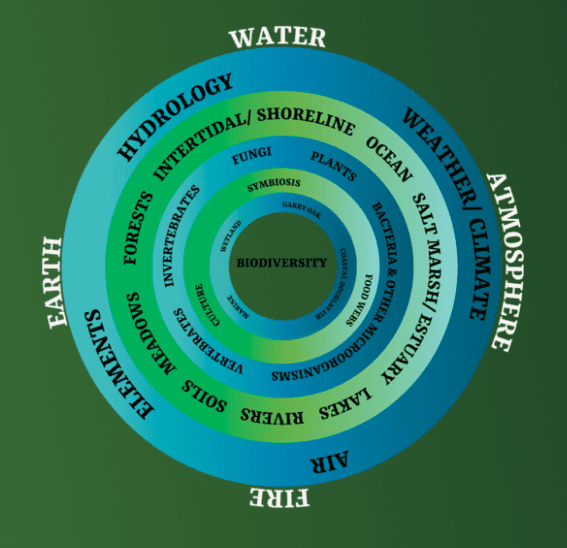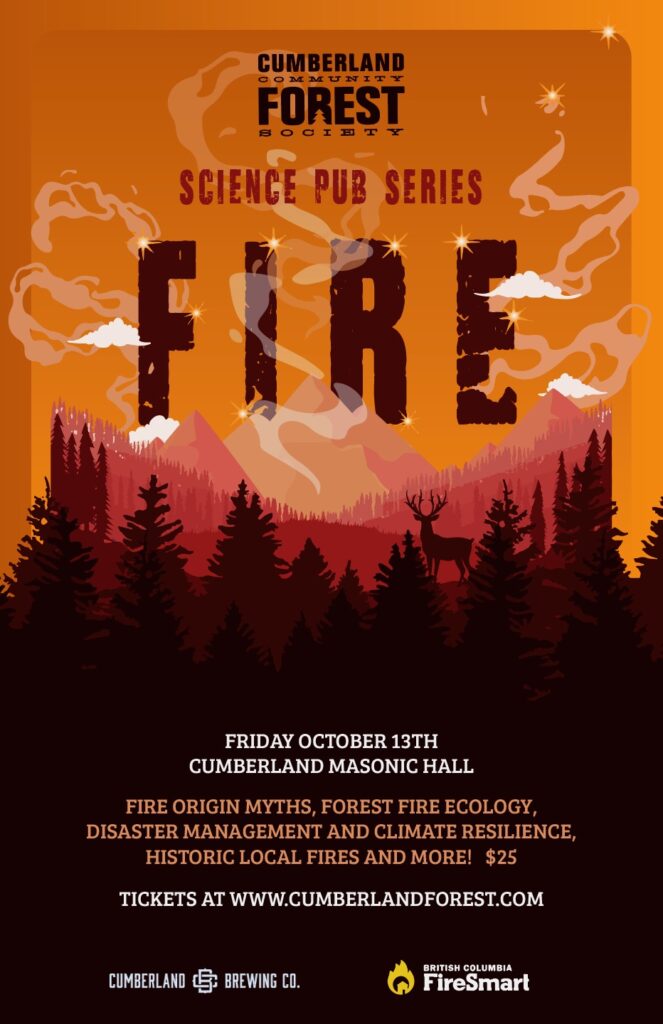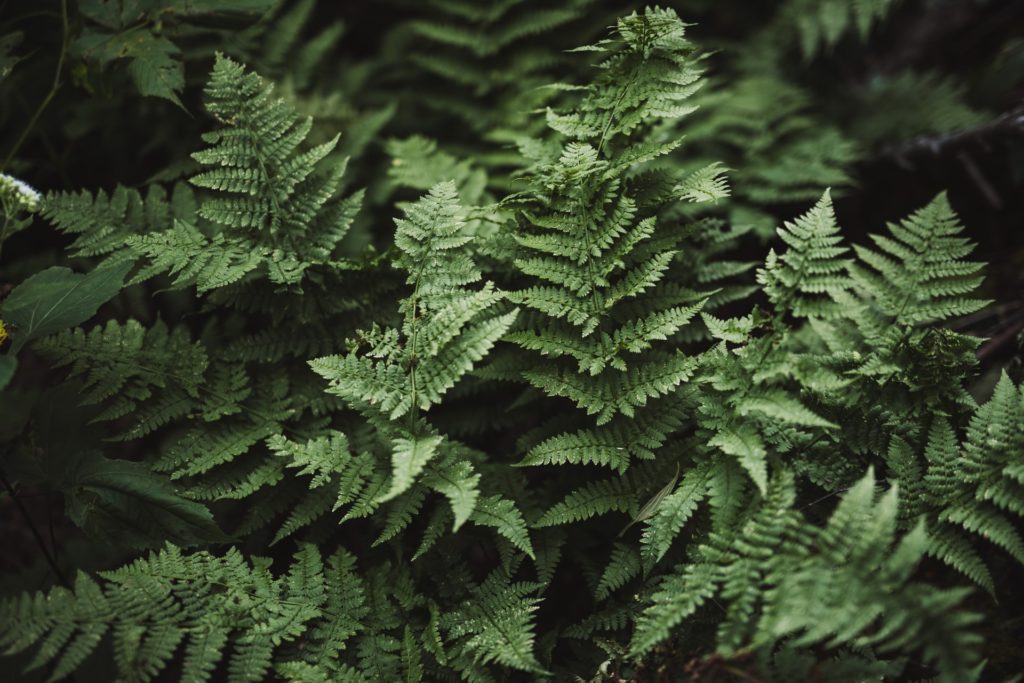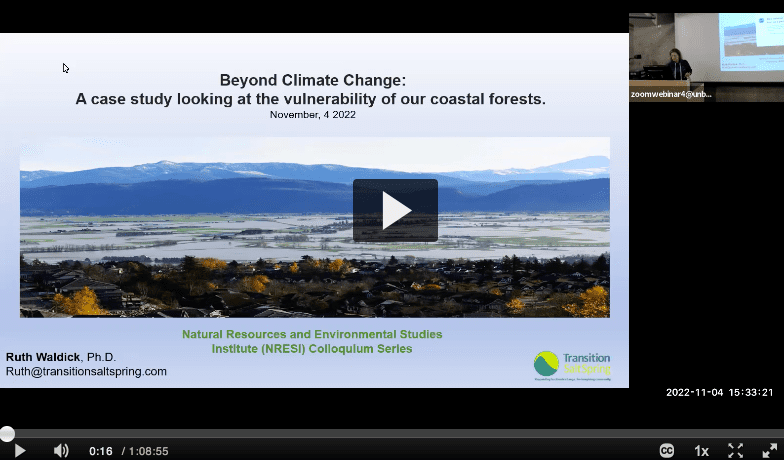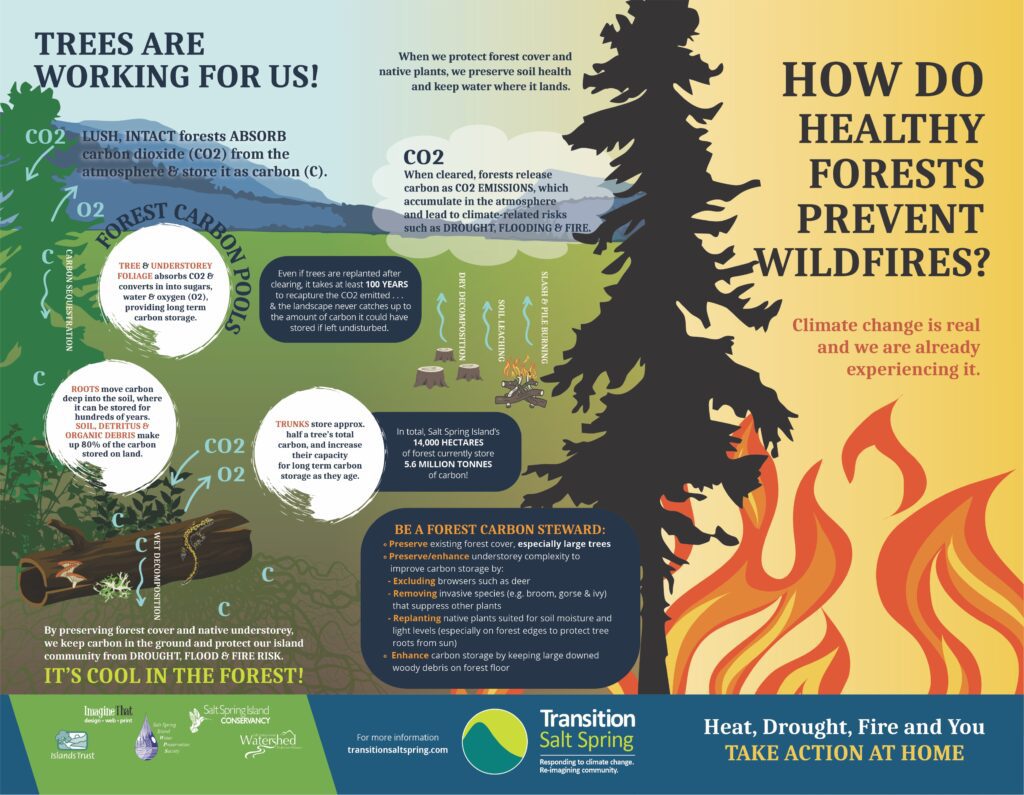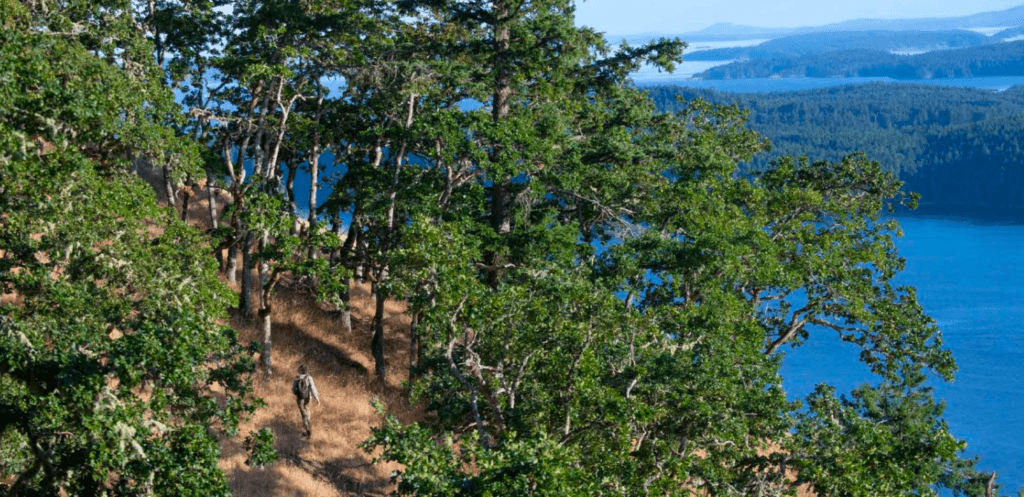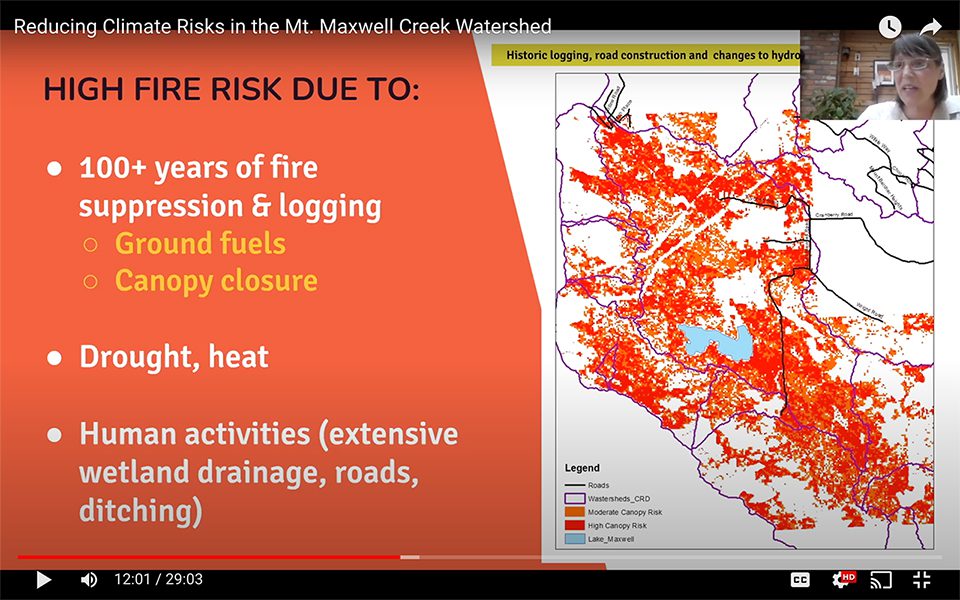We work on projects of an ecological nature, including climate research, and the climate action relevant to our unique region.
This includes working with groups in the community, fostering collaborations, creating educational resources to support action from CAP 2.0.
As a collection of scientists, writers, and local knowledge holders, our aim is to support collaborations with members of our community, the Islands Trust and our local CRD.
We are looking for all types of people interested in research, action, and education to support our local ecologies in the face of climate change.
Please check out our activities and let us know how you would like to get involved.
Email Ruth for more information
Salt Spring Island’s Coastal Douglas fir (CDF) forests are part of a globally rare ecological zone found almost exclusively on BC’s south coast.
These forests and associated ecosystems are critical to the health of island communities – watershed health and freshwater availability, resilience from drought, flood and fire, and mitigation of impacts of climate change. But they have been undergoing drastic change and are increasingly at risk.
Find out how CDF forests support us and how we can properly steward them to reduce risk and enhance island resilience. Watch the video here!
Activites
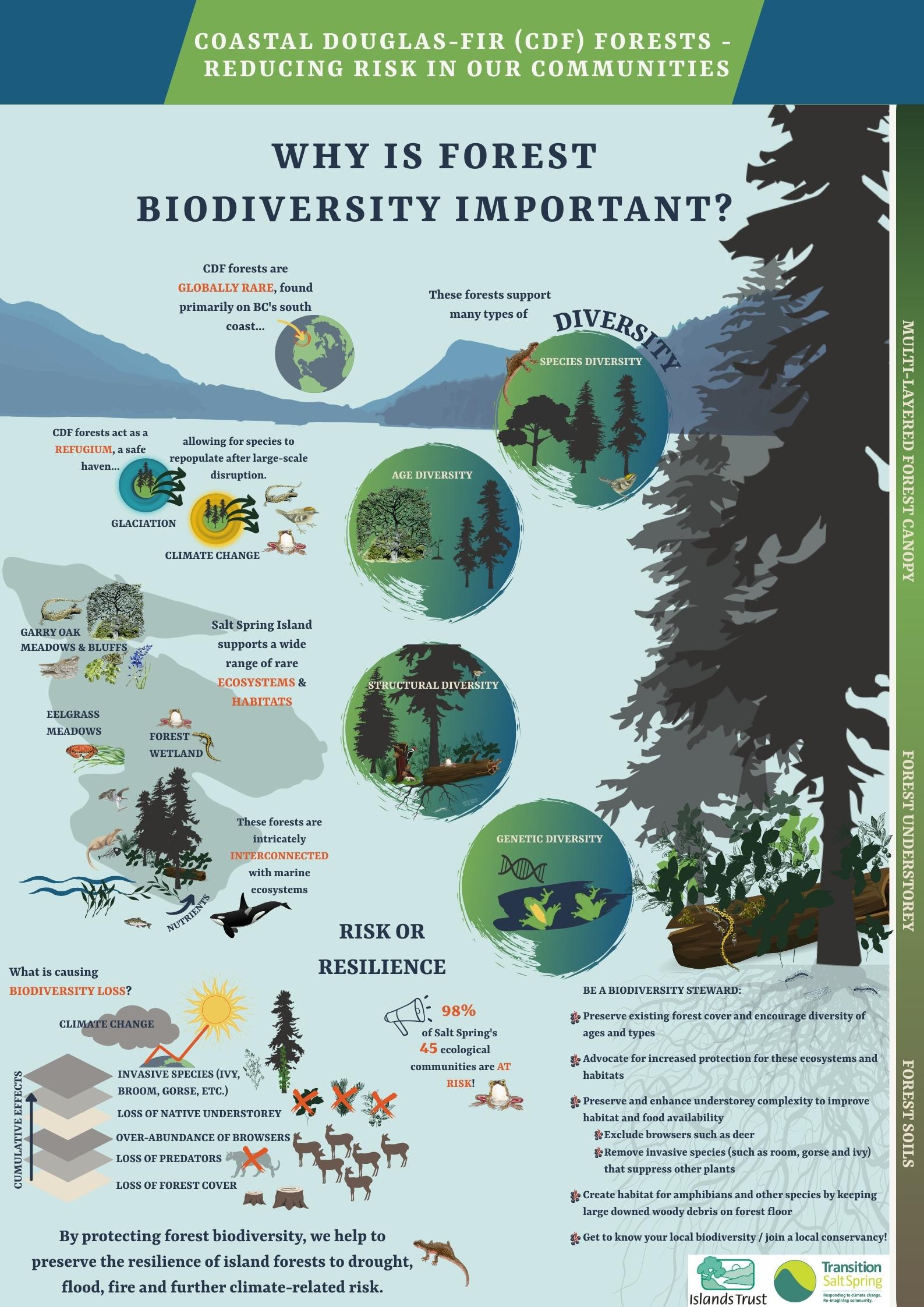
- Contributing information, locally relevant research and working with members of the community to develop climate actions relevant to our region (Climate Action Plan 2.0).
- Producing educational materials, website interactive resources and tools, video information, and resources on role of forests in fire risk reduction (with Local Trust).
- Developing a SSI Watershed Stewardship; educational video series to capture the important role of stewardship and understanding the delicate balance between freshwater availability, use and the health of our ecosystems.
- Working with SS Fire and Rescue, other Gulf Islands and Local Islands Trust to define actions to reduce fire hazards and harm to water resources in the face of shifting weather patterns.
- Forest-fire-water: conservation planning research to support policy and land planning.
- Contributing to conservation prioritization and fire risk reduction planning to support the Island Trust Conservancy and Local Island Trust.
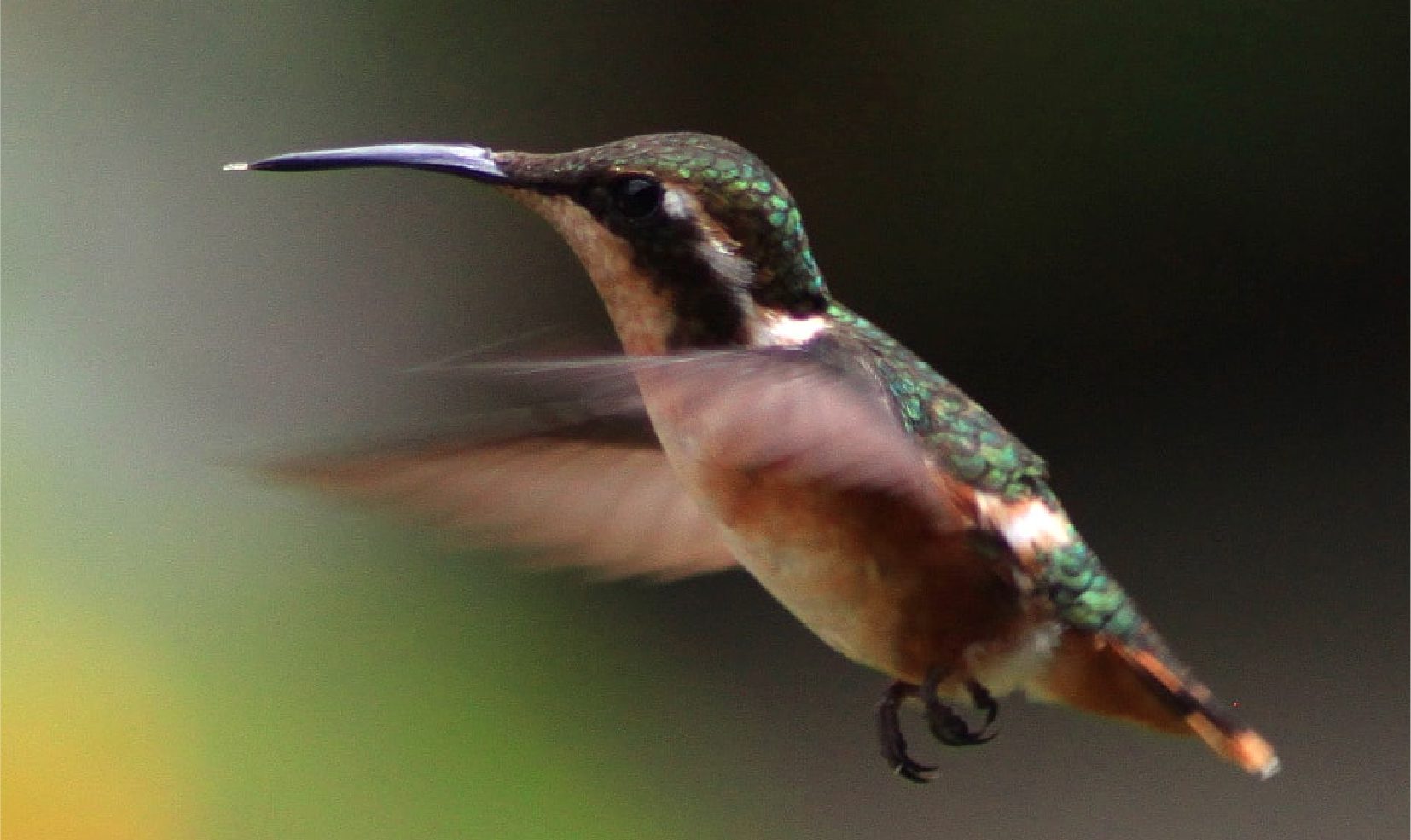
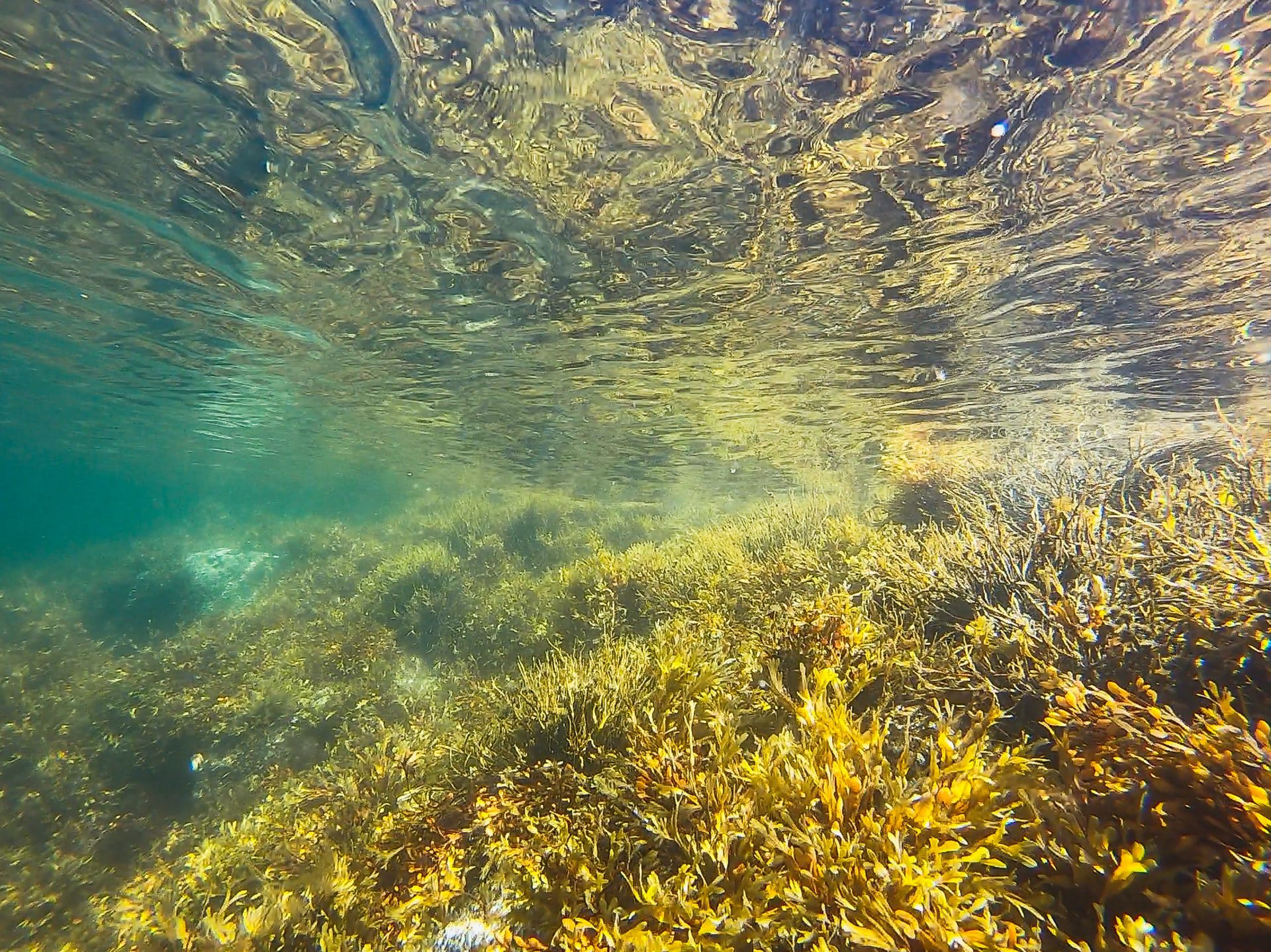
- Marine Regenerative Farming Feasibility study: The priority for this work was to understand potential roles for our community in reconciliation by supporting regenerative marine projects to respect and acknowledge cultural and traditional values in the Salish Sea.
- Provide support directly, and by sharing our work and resources with other Salish Sea communities addressing climate action.
Forest Infographics
Sorry, we couldn't find any posts. Please try a different search.

